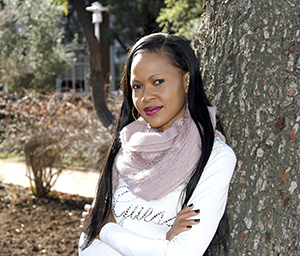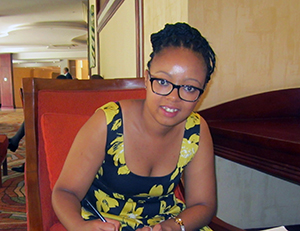Latest News Archive
Please select Category, Year, and then Month to display items
10 March 2022
|
Story Anthony Mthembu
|
Photo Unsplash
 The No Student Hungry team gearing up to start distributing food parcels to the selected students.
The No Student Hungry team gearing up to start distributing food parcels to the selected students.
The UFS is one of the many institutions of higher learning where food insecurity is an active issue. However, the
No Student Hungry Programme is one of the initiatives launched at the university to assist in fighting food insecurity at the institution.
The purpose of the programme
Since its inception in 2011, the initiative has assisted many students in acquiring a healthy meal. Additionally, the Food Environment Office also hands out food packages, so that students can continue to achieve academically. “We are trying to develop a healthy environment for students and make it easier for them to have a nice and healthy meal,” stated Annelize Visagie, who heads the Food Environment Office at the UFS. The Food Environment programme is spread out on all three campuses, each with its own facilitators. Furthermore, the programme mainly caters for students who are not funded by the National Student Financial Aid Scheme (NSFAS) but who are excelling academically. The abovementioned students apply for assistance online, and a list is then drawn up of students who receive assistance for the year.
Alternative solutions to keep the initiative running
On the Bloemfontein Campus, the No Student Hungry Programme will be catering for 200 students in the 2022 academic year, assisting them with a daily nutritious meal. Additional food parcels are also handed out to provide further assistance. “We give food parcels to the students on the list every Tuesday and Thursday at the Thakaneng Bridge,” Visagie highlighted. However, she argues that catering for the student population through this programme can be a challenge, as the demand for assistance is growing rapidly and the ability to assist is limited. The programme relies on partnerships and sponsors to assist the student body. In fact, the coordinators of the programme currently have a memorandum of understanding with Tiger Brands according to which they deliver around 100 food parcels for distribution.
In addition, the coordinators have put in place alternative measures to ensure that they can provide more food to students. “The
Kovsie Act Office, in partnership with the
Department of Sustainable Food Systems and Development, has started a food garden where healthy and nutritious produce are grown, in order to add value to the distribution,” she indicated. Although the programme can only assist to a point, students who are in desperate need of assistance are never turned away. In fact, the
Social Support Unit at Thakaneng Bridge usually assists students with food vouchers for a maximum of four days.
A commitment to teaching healthy eating habits
The programme is not only committed to curbing food insecurity, but also to ensuring that students have a healthy and balanced diet. As such, a booklet is being issued by the
Department of Nutrition and Dietetics in collaboration with the Department of Sustainable Food Systems and Development, which contains ways in which students can make a healthy meal using some of the ingredients offered in the food parcels.
“We want to teach students how to eat healthy in the cheapest way, because they don’t have a lot of money to buy expensive food products,” Visagie argued.
Trauma, Forgiveness, and Reconciliation Studies attracts global attention
2016-06-27

Lerato Machetela is on her way to
Ghent University in Belgium where
she will spend 10 months working
alongside experts in the field of
historical trauma.
Photo: Eugene Seegers
Research excellence is one of the major driving forces at the core of the University of the Free State (UFS). This striving for academic distinction has found embodiment within Trauma, Forgiveness, and Reconciliation (TFR) Studies. Headed by Research Fellow and Senior Research Professor Pumla Gobodo-Madikizela, the research unit is raking in achievements consistently.
Cornell University Distinguished African Scholar Award
Leading by example, Prof Gobodo-Madikizela received the prestigious 2016 Distinguished African Scholar Award from Cornell University recently. Being honoured with this award affirms an unusual depth of knowledge and experience in a field related to the recipient’s own work. Through this award, Prof Gobodo-Madikizela is now also affiliated with the Institute for African Development and the Psychology Department at Cornell University.
Ghent University fellowship in historical trauma
Another member of TFR has caught international attention. Lerato Machetela – a PhD student at the research unit – received an invitation from scholars at Ghent University in Belgium. Machetela will leave in September, where she will spend ten months in Ghent with experts in the field of historical trauma. She will be affiliated to their university’s Cultural Memory Studies Initiative and the Psychology Department. When Machetela submitted her PhD proposal on transgenerational transmisison of trauma among the youth in Jagersfontein to the UFS Psychology Department panel, “it was hailed as a unique project, and a first for the department,” Prof Gobodo-Madikizela says.

Naleli Morojele conducting the research
in Rwanda that has formed the basis of
her new book, Women Political Leaders
in Rwanda and South Africa: Narratives
of Triumph and Loss.
Book explores triumph and loss of female political leaders
TFR cultivates thriving authors actively, the latest being Naleli Morojele, who is pursuing a PhD in the field of Political Studies. Soon, Morojele will be launching her book, Women Political Leaders in Rwanda and South Africa: Narratives of Triumph and Loss. Through the stories of significant female Rwandan and South African leaders, the reader gains insight into these women’s early-life experiences, struggles, and successes. Perhaps even more pertinently, Morojele’s book also exposes the ways in which gender inequality still works to smother their roles as citizens and politicians.